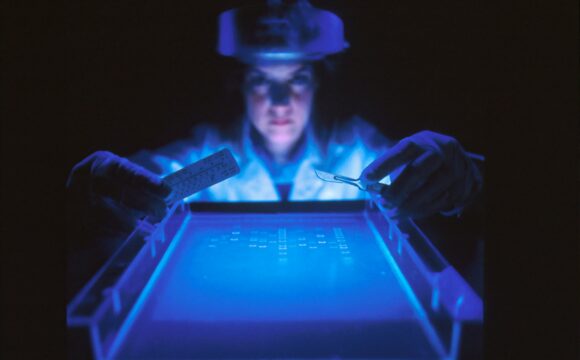
The Challenge
Life sciences has become a data-intensive discipline involving the generation and combination of large complex datasets from personal, institutional, national and international repositories.
In response, the Australian BioCommons BYOD Expansion project set out to build a platform where researchers can bring data they want to combine and analyse it effectively, hence the name ‘bring your own data’ (BYOD).
The Response
The Australian BioCommons is new piece of life sciences research infrastructure for enhancing the productivity, capability and capacity of Australian research biologists and research informaticians.
The Australian BioCommons BYOD Expansion project is augmenting that capability with a suite of software and workflow development and deployment activities that enables highly accessible, highly available, highly scalable analysis and data sharing capabilities for the benefit of life science researchers nationally.
The project comprises 3 main activities:
- web-based bioinformatics workbenches – providing online access to best-practice life science tools, workflows, data and training, underpinned by managed compute and storage
- a complementary platform focusing on command-line interfaces (CLIs) – delivering community-curated life science workflows, tools, training and support across Australian command line infrastructures
- data infrastructure connecting omics instruments and reference datasets to the analysis infrastructure – making it easier for life scientists to access, analyse, visualise and share data coming from data generating facilities or generated by research consortia.
The Outcomes
The Australian BioCommons BYOD Expansion project has culminated in 4 new national services, major expansions to Galaxy Australia, 15 training workshops and webinars, and many specialised workflows for accessible, available and scalable data analysis and sharing for Australian life science researchers. Key tools and services include:
- Australian Apollo Service, for real-time community curation and genome annotation editing
- Australian Alphafold Service, for AI prediction of a protein’s 3D structure from its amino acid sequence
- Galaxy Australia, capacity and capability expansion
- Galaxy Australia’s Training Infrastructure as a Service (TIaaS), for instructors to apply for dedicated training capacity and monitor the status of trainees’ jobs
- Galaxy Australia Genome Lab, a user-friendly view of Galaxy Australia providing rapid access to sophisticated genome assembly and annotation resources
- Australian Fgenesh++ Service, for automatic prediction of genes in eukaryotic genomes
- Tool Finder, a searchable table detailing which versions of bioinformatics software are installed across Australian computational infrastructures
- Pilot of the Seqera Platform, which makes it easier to run Nextflow pipelines
- BioImage, a purpose-built bioinformatics environment on the command-line
Who Will Benefit
This project has led to:
- integration of the Bioplatforms Australia-funded instrument base for genomics, proteomics and metabolomics
- enhanced accessibility to reference data prioritised by Australian research communities
- managed access to datastores and compute infrastructures to meet analysis demand
- adoption of best-practice features and functionalities realised within the international Galaxy project.
The new Australian BioCommons BYOD Platform will enhance the productivity, capability and capacity of Australian research biologists and research informaticians by providing a new ability to apply and improve a growing array of digitally enabled bioinformatics research techniques. It will help our Australian researchers stay at the forefront of a wave of international investment and developments in these new technologies.
Read testimonials from researchers using outputs of this project.
The Partners
The Australian BioCommons BYOD Platform is an outcome of considerable consultation with the research community. The concept has been extensively developed and refined with the community to bring the all stakeholders together and further strengthen the project.
Our partners were:
- The Australian BioCommons
- The University of Melbourne
- Bioplatforms Australia (BPA)
- AARNet
- Australian Access Federation
- National Computational Infrastructure
- Pawsey Supercomputing Research Centre
- Queensland Cyber Infrastructure Foundation
- Melbourne Bioinformatics
- University of Sydney.
Further Resources
- Australian BioCommons’ summary of the project, and testimonials of output users





